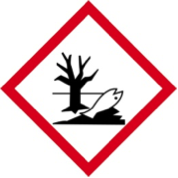Other studies have reported.
Vinyl chloride clean water act.
About 13 billion kilograms are produced annually.
Table 117 3 reportable quantities of hazardous substances designated pursuant to section 311 of the clean water act note.
Congress specifically identified vinyl chloride as a hazardous air pollutant under the clean air act and it is regulated as such by the epa.
Pvc is used in a variety of applications.
The clean water act requires epa to develop criteria for surface water quality that accurately reflect the latest scientific knowledge on the impacts of pollutants on human health and the environment.
Exposure to vinyl chloride is also subject to workplace safety standards for airborne concentrations.
An acute duration inhalation mrl of 0 5 ppm was derived for vinyl chloride based on a noael for developmental effects for mice john et al.
Basic information on water quality criteria.
The international national and state regulations and guidelines regarding vinyl chloride in air water and other media are summarized in table 8 1.
Its chemical formula is c2h3cl.
Atsdr has derived three mrl values for vinyl chloride.
The regulation for vinyl chloride became effective in 1989.
The clean air act establishes standards for vinyl chloride emissions from production and manufacturing facilities and the epa has published a water quality criteria document for vinyl chloride under the clean water act.
Current water quality criteria tables.
Clean water act water quality criteria.
It is primarily used to manufacture polyvinyl chloride pvc a very stable non flammable lightweight and durable plastic.
The purpose of the national emission standard for hazardous air pollutants neshap is to minimize vinyl chloride emissions from process and fugitive emission sources in ethylene dichloride vinyl chloride and polyvinyl chloride production categories to the level attainable with best.
The epa regulates vinyl chloride as a hazardous component of waste under the resource conservation and discovery act and has.
Vinyl chloride has been used in the past as a refrigerant.
Epa has set a drinking water standard for vinyl chloride.
Vinyl chloride monomer vcm is a colorless flammable gas at room temperature.
Between 1993 and 1995 epa required your water supplier to collect water samples every 3 months for one year and analyze them to find out if vinyl chloride is present above 0 5 ppb.
Vinyl chloride is an organochloride with the formula h 2 c chcl that is also called vinyl chloride monomer vcm or chloroethene this colorless compound is an important industrial chemical chiefly used to produce the polymer polyvinyl chloride pvc.
The concentrations in groundwater were up to 0 008 ppm.
You can be exposed to vinyl chloride by drinking water from contaminated wells.
Most drinking water supplies do not contain vinyl chloride.

